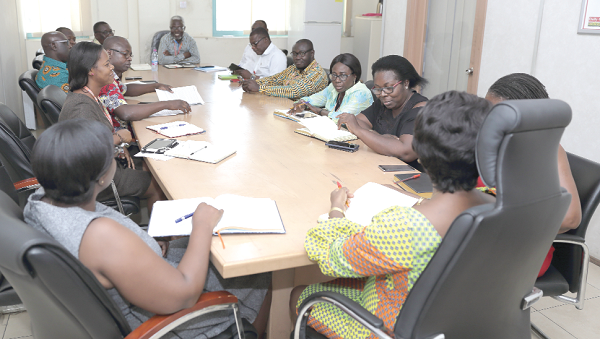
Ghana makes strides in press freedom - 1992 Constitution, game-changer
GLOBAL attention will be on Ghana today, as the national capital, Accra, hosts the main event of the 2018 World Press Freedom Day.
Officials of UNESCO and the International Federation of Journalists (IFJ), as well as scores of media practitioners from across other parts of the world, are in Accra to join their counterparts in Ghana to mark the event, which is on the theme:“Keeping power in check: media, justice and the rule of law.”
Advertisement
Ghana’s current high ranking in media freedom has been attributed to provisions in the 1992 Constitution which speak to freedom of the press.
Chapter 12 of the Constitution guarantees freedom of the press and independence of the media, while chapter two prohibits censorship.
Some media experts, who alluded to the power of the constitution in keeping at bay infringements on press freedom in Ghana, however, noted that despite taking the top spot in Africa and the 23rd position globally, in the latest ranking by Reporters without Borders, published by Freedom House, there were still excesses and huge challenges confronting the Ghanaian media that needed to be dealt with.

Progress and challenges
In an interview with the Daily Graphic ahead of the celebration, the chairman of the National Media Commission, (NMC) Nana Kwasi Gyan-Apenteng, said: “The 1992 Constitution has been the game-changer. We are where we are because the constitution provides clarity on the rights of journalists, the right of the media and provides a plural media that will be free and independent and so that is very important.
“Often times we think it is because a government is benevolent and doesn’t want to mistreat us or whatever, but it is the constitution that determines where we are. And the constitution, in chapter 12, which is dedicated to the freedom and independence of the media, is very clear and removes the control or management of the media completely from the government and from the executive to an independent media commission and this is critical,” he said.
He stressed that it was the constitutional mandate that made all the difference.
Touching on the strides made by the Ghanaian media as a result of the freedom it had enjoyed in about three decades, Nana Gyan-Apenteng said: “I believe we’ve really come a long way. By the index of countries in the Press Freedom Index provided by Reporters without Borders, Ghana is currently at the 23rd position, and I think that is the first in Africa.
He noted that over the last few years, the country had advanced from a couple of radio stations and one television station, to scores of radio stations and currently free-to-air television stations were also counted in the dozens.
“Newspapers, magazines and other kinds of publications appear on the newsstands almost every day with new ones coming in. So we have won the numbers game and that is very important. It means that out there nobody is monopolising media“, Nana Gyan-Apenteng stressed.
The NMC chairman said, however, that the strides made in media freedom, did not automatically translate into quality “that is why I have said that we are free but not necessarily independent.”
According to him, too many media houses, especially in broadcasting, were not independent because they had to toe the line of either their owners or a political party.
He, therefore, called for the strengthening of independent mechanisms, adding that “above all, too many journalists were poorly paid, and there is not enough professional training going on for people in the media.”
Obstacles
For her part, the Dean of the School of Communication Studies, University of Ghana, Professor Audrey Gadzekpo, said: “We have good constitutional provisions that are largely being tested but there are also dangers to the media.”
She, however, expressed concern that the constitutional provisions had not stopped people from attacking journalists from time to time, and added that the lingering culture from security forces and the police could be very heavy-handed sometimes.
Making reference to the 1992 Constitution, the Minister of Information, Dr Mustapha Abdul-Hamid, stated that the country’s desire to sustain an independent press had been seen in a number of actions, including the Supreme Court, declaring certain aspects of a Broadcasting Content Bill that the NMC sought to promulgate two years ago, as unconstitutional because it was going to affect press freedom.
“Press freedom in Ghana has come a long way but has come to stay and the government is committed to protecting it and ensuring that press freedom becomes stronger and better,” he stated.
The Director of Newspapers, Graphic Communications Group Limited, Mr Yaw Boadu-Ayeboafoh, for his part, expressed optimism about the future of press freedom in the country, noting that, “the future looks good because many more Ghanaians are becoming conscious and when the media acts without responsibility there are others who point that out and again the media also serves as checks on each other.”




